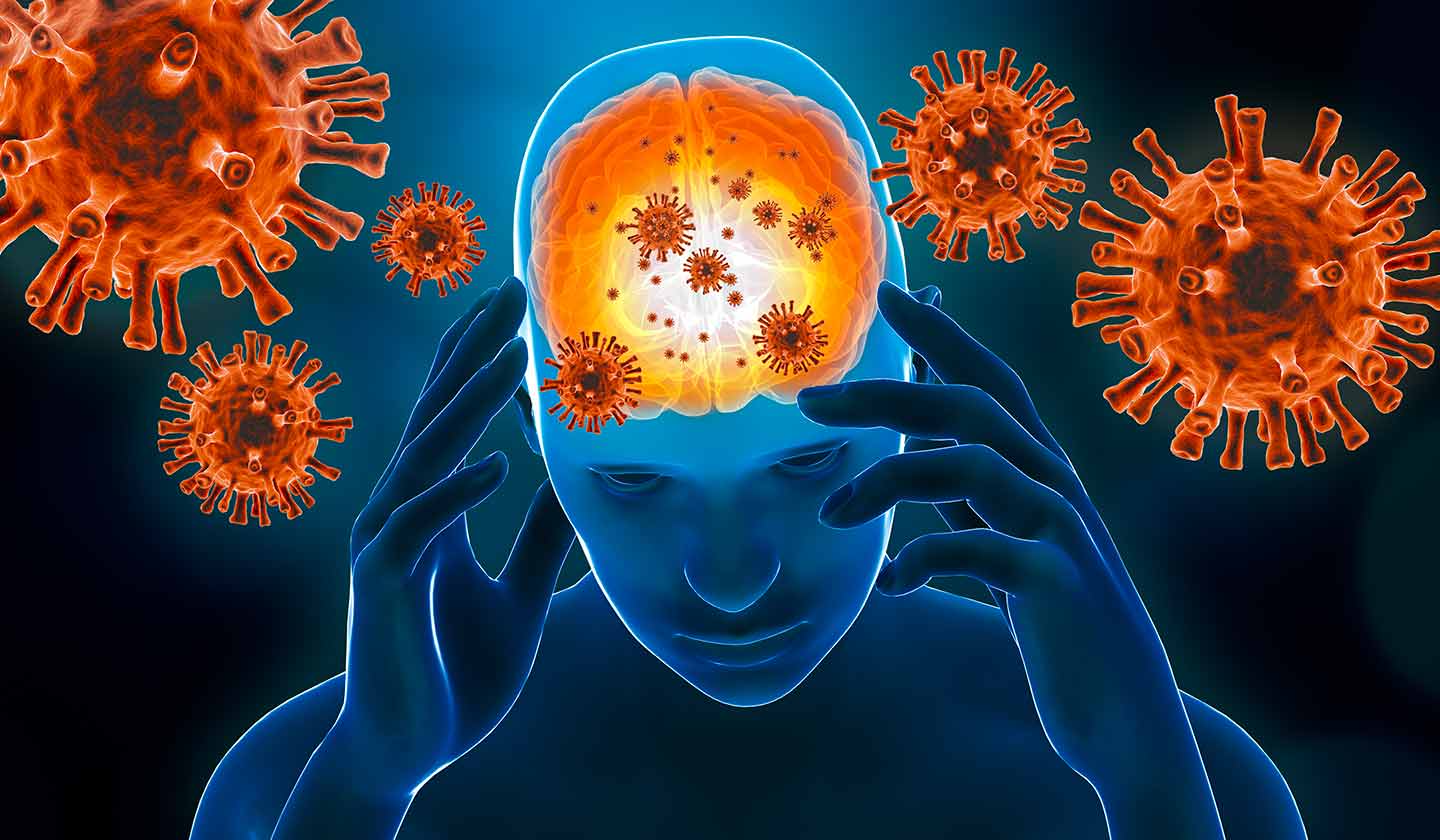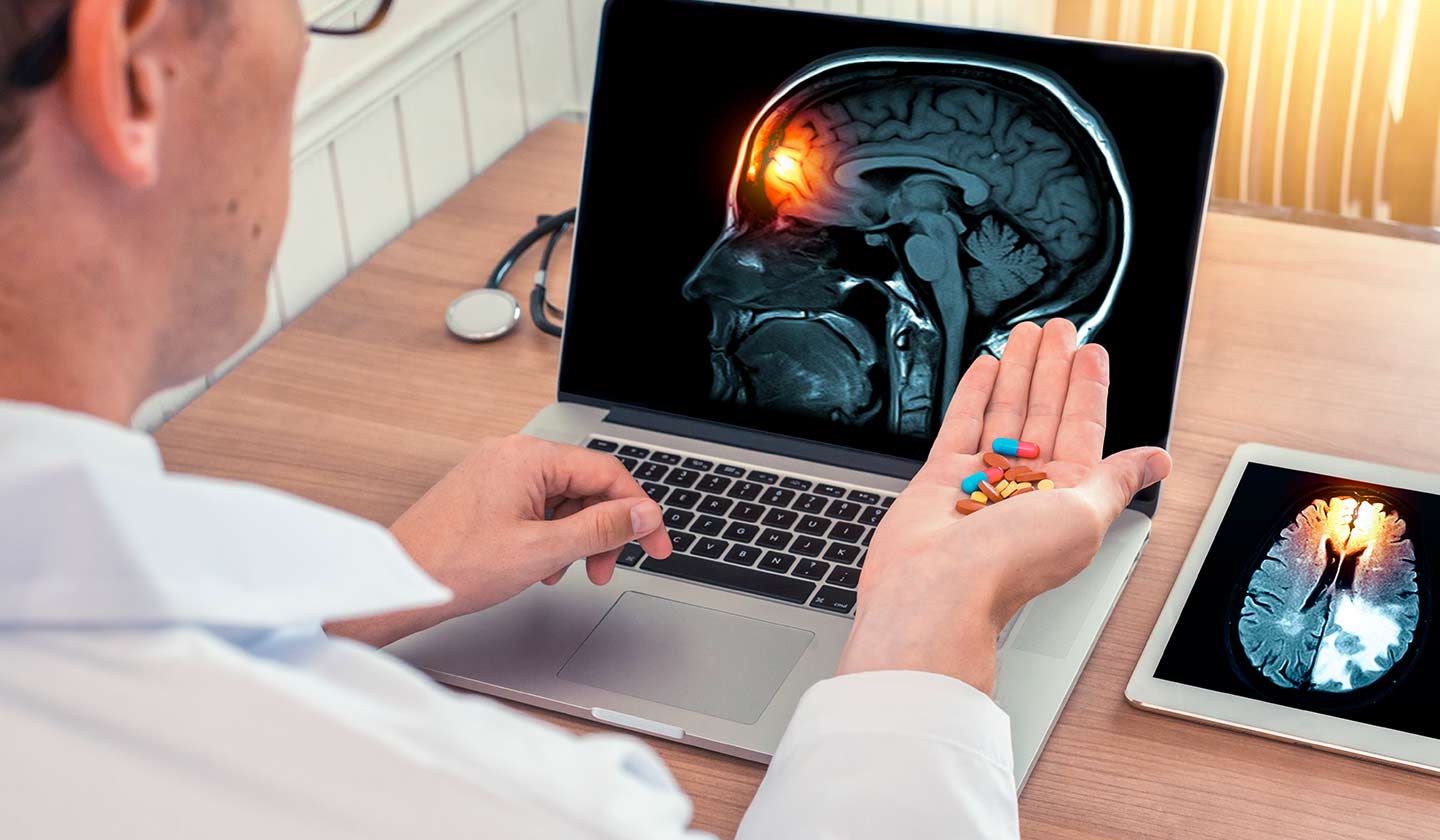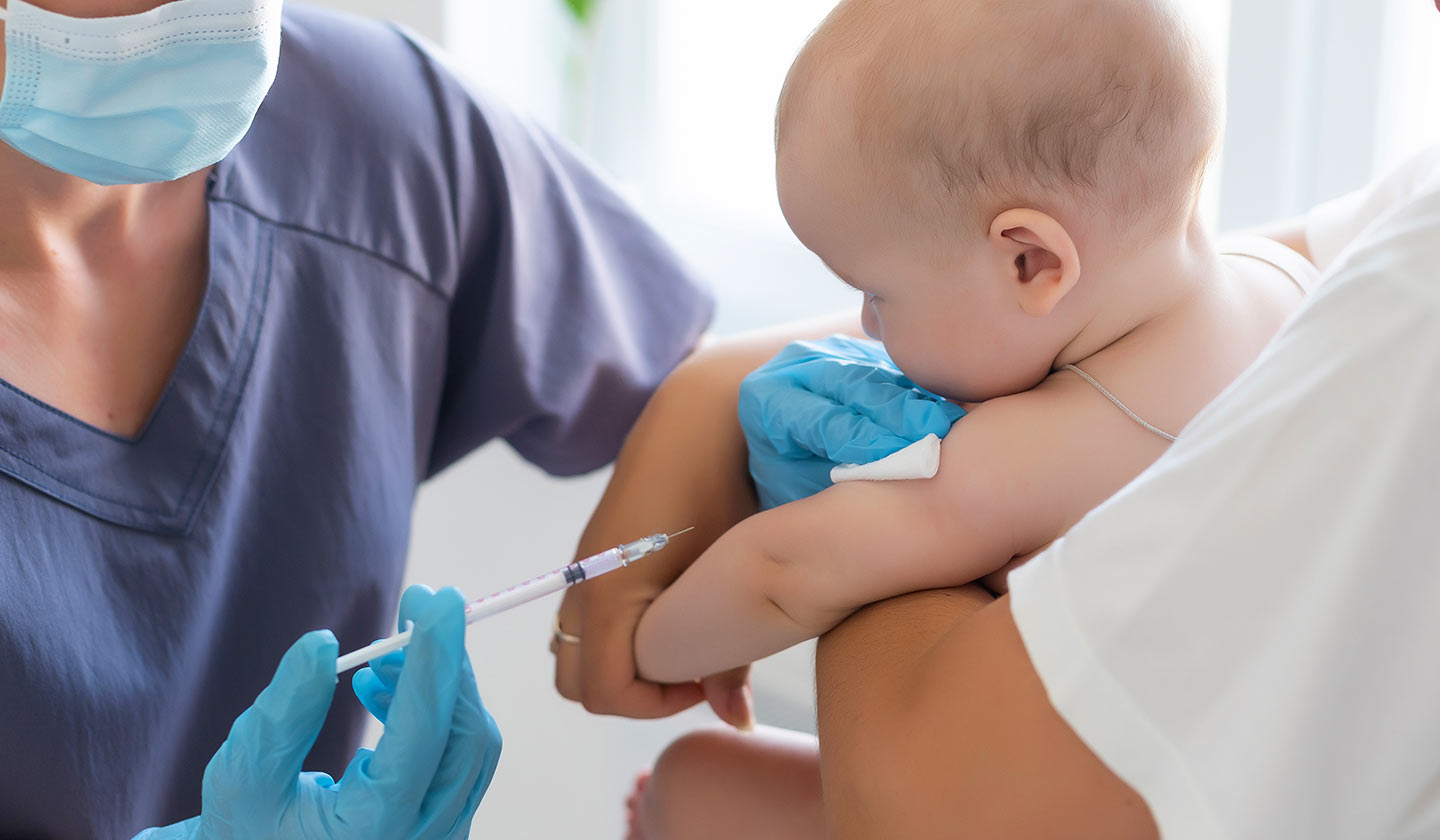Prevention
Meningitis

Meningitis is frightening, especially for those who deal with children. But it is important to know more about the disease and to know that some cases can already be prevented through a vaccine.
What is Meningitis
Meningitis is an inflammation of the meninges, the membranes that line the brain and spinal cord.
It can be caused by various agents, such as fungi or parasites, but almost always comes from a virus or bacteria:
VIRAL - is the most common and least severe, sometimes being confused with the flu, and are caused by viruses such as enteroviruses;
BACTERIAL - is less common, but more serious, and if not diagnosed and treated in time, can lead to brain damage and even be life-threatening.
Meningitis can affect people of all ages, but is most common among children and the elderly. The bacteria most commonly involved are Neisseria meningitidis (meningococcus), Streptococcus pneumoniae (pneumococcus), and Haemophilus influenzae type B.

Symptoms
- Sudden high fever;
- Headache;
- Vomiting or nausea;
- Mental confusion or difficulty concentrating;
- Light sensitivity;
- Loss of appetite or thirst;
- Weakness;
- Neck stiffness;
- Seizures;
- In babies, meningitis may be manifested only by constant crying, irritability and refusal of food;
- Skin lesions (also called “rash”).

From diagnosis to treatment
If you experience any of these symptoms, it is important to see a doctor immediately, as speed is of the essence for diagnosis and treatment, as well as for preventing complications. A diagnosis of bacterial meningitis usually involves hospitalization and treatment with antibiotics. Viral meningitis, on the other hand, can, in some cases duly identified by the doctor, be treated at home with medicines that help relieve symptoms and the so-called self-care: rest and increase fluid intake.
Bacterial meningitis
Transmission - Bacterial meningitis is transmitted through direct contact with nasal droplets and secretions favored by coughing, sneezing, kissing and physical proximity to other patients with the infection.
Period of contagiousness - The period of contagiousness persists until the bacteria disappear from the rhinopharynx. In general, contagion ceases 24 hours after effective therapy has been started.
Incubation period - The incubation period occurs between 1 and 10 days, but generally does not exceed 4 days.
Diagnosis - The diagnosis of bacterial meningitis is made by:
- clinical examination with signs suggestive of meningitis
- blood tests
- cerebrospinal fluid testing, which involves a lumbar puncture
Severity - Bacterial meningitis can have different prognoses:
- recovery without sequelae
- a percentage of patients do not fully recover and have sequelae such as hearing loss seizures or mental changes
- in the most severe cases, where the disease progresses rapidly, it can cause death within hours.
Complications - A more severe presentation of the disease can lead to the development of some complications, such as:
- seizures
- generalized infection
- brain damage
- partial or total hearing loss.
Treatment - Early treatment of meningitis is critical to its effectiveness and increases the chances of a recovery without sequelae. It is usually treated with drug therapy, taking antibiotics.
Did you know that….
Usually , in the case of skin lesions caused by meningitis, by applying pressure with a clear glass cup, you will continue to observe them. In this case it is essential to see a doctor. If the lesions disappear while you press on them with the glass, it means that they may be unrelated to meningitis. If in doubt, always consult your doctor.

The best thing is to prevent
Infectious agents can spread through the fluids from the throat and nose of the sick person to a healthy person. But this contagion does not happen in occasional contact: it involves prolonged sharing of enclosed spaces, as well as everyday objects.
Thus, it is possible to try to prevent meningitis by adopting some hygiene measures, such as:
- Do not share utensils used for food, or even hygiene, such as toothbrushes;
- Do not share tissues, napkins or bathroom towels;
- Always wash your hands before eating and after going to the bathroom, handling animals or being in places with many people.
The most effective prevention, however, is through vaccination. A vaccine against meningitis caused by type C meningococcus is available from the National Vaccination Program (PNV). There is also a vaccine against meningitis caused by meningococcus type B, recommended for groups at increased risk for certain diseases.
Vaccination reduces the number of cases and the severity of this disease, so it is essential that children and young people are vaccinated.
Check with your pediatrician.
Sources
www.mdsaude.com
www.sns24.gov.pt
iSaúde
Também lhe poderá interessar
Signs and symptoms
Your child has a fever, don't despair, but stay vigilant
Respiratory system






